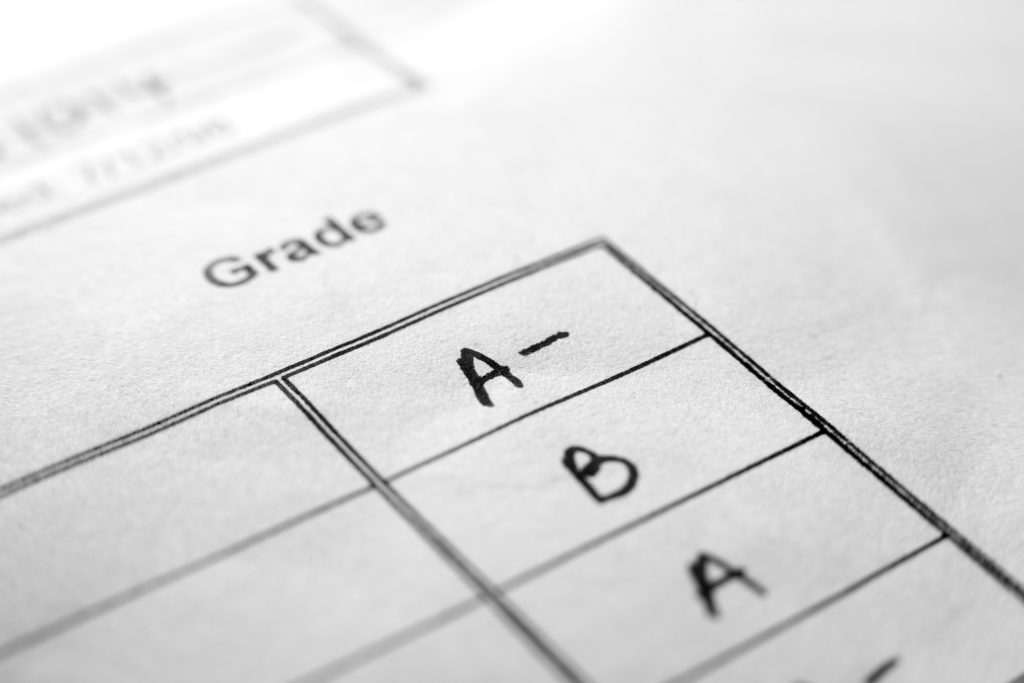4 Report Card Discussion Tips

Do you and your kids talk about report cards together? A report card discussion is a key step in staying looped in on your child’s school progress, helping you get insights into learning beyond just letter marks and grades.
For many parents and guardians, the first formal report card is their first look and indication of how well (or not-so-well) their child is performing at school. Report cards are important for parents to utilize as a tool to check in on their child’s academic performance and development.
Learning how to interpret the information provided on a report card is essential. Reading a report card correctly is key to assessing your child’s progress. The first-semester report card is especially important as if there are any issues, parents and students can make a plan to get ahead of any challenges.
Tips For The First-Semester Report Cards

Review the Report Card—On Your Own
Your initial inclination might be to search for areas where your child needs to improve when you receive the report card. Before you talk to your child about the results, processing all the information yourself is crucial. Learn how to decode a report card here.
Start by taking note of all the positives, such as improved grades. Next, identify any areas of weakness or subjects that may be slipping. It’s important that you, as a parent, understand the report and what areas need attention.
Plan a Report Card Conversation
It’s crucial to prepare for the report card conversation in advance.
Always begin and finish the conversation with positive news. If you’re giving any negative comments, make sure to follow it up with a position one!
Beginning with positive news will give students the self-assurance they need to process any negative news. Additionally, ending with good news will give them a sense of empowerment rather than defeat.
Check out these 16 tips for talking to your child about report cards.
Meet Privately With Your Child
Sit down together for an interruption-free report card chat. If you have more than one child, talk to each one separately. Ensure you allow adequate time to talk about their academic performance at school and how they feel about school in general.
It’s understandable that children may be uncomfortable talking about their report cards. So, ask your kid how they felt like they did before letting them see the report. This will show how aware they are of their own performance.
Ask what they took away from each subject. This will help gauge how well your child thought they did and what they can improve on for the second semester.
Praise, Praise, Praise, and Strategize for Improvement.
Share your pride in your child’s accomplishments in the subjects they did well in, and point out any advancements they’ve made. Children need encouragement just as much as they need constructive criticism.
Talk to your child about areas where they may improve, and together, you devise a strategy for the second semester to address any issues. And always remember to end positively by expressing how proud you are of them. Check out these 5 tips for dealing with a bad report card.
With these suggestions for handling school report cards, you’ll be better prepared to interpret the information provided by the report card and engage in a meaningful conversation with your child.
- Recognize accomplishments
- Identify areas needing improvement
- Create a plan for success in the second semester
Need Help with Report Cards?
Our tutors at Oxford Learning can help your family create a great learning routine for the school year ahead.
Contact a location near you to get started today!




